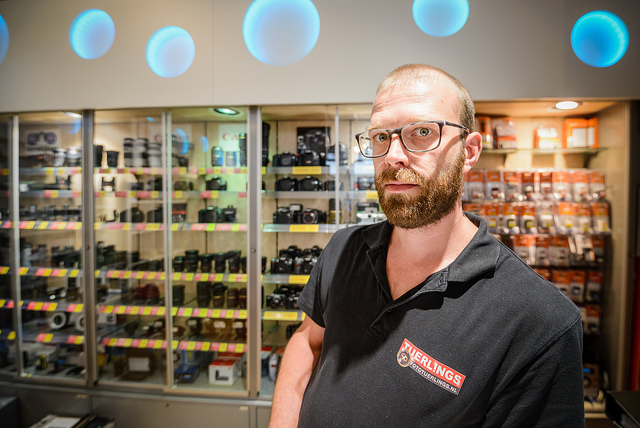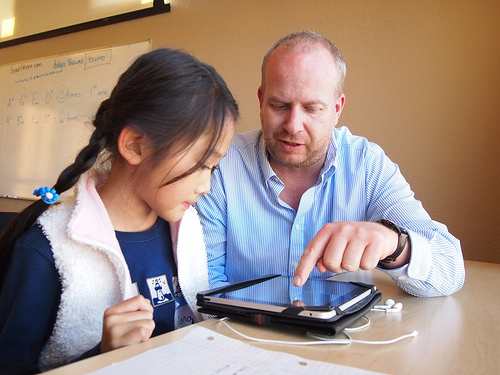Developing an Annual Marketing Plan and Marketing Strategy
tech parks Marketing agency Fatima Nagar Pune
Fulcrum Marketing is a strategic tech parks Marketing agency Fatima Nagar Pune. Our team of marketing consultants also specialise in marketing planning and tech parks Marketing for all types of business of any size.
communication and tech parks Marketing management
Effective communication and advertising management is important to not only correctly identify a target audience, but also to reach this audience efficiently through different information channels. There are many benefits of successfully managing these marketing communications, including, but not limited to:
- A higher Return on Investment (ROI)
- Reaching more of your target audience
- Reduced costs for tech parks Marketing
- Types of market segmentation:
- Demographic segmentation: gender, age, income, education, occupation
- Geographic segmentation: city, state, country
- Psychographic segmentation: attitudes, values, attitudes, lifestyle
- Behavioural segmentation: purchasing patterns, loyalty status
Implementing a tech parks Marketing Strategy
Implementing a Marketing Strategy Execution Plan, known to Fulcrum and our clients as a “Sprint Plan” is the most effective way to prevent this highway-less journey , tech parks Marketing agency Fatima Nagar Pune. A Marketing Strategy is a set of strategic goal-focused plans for a certain period of time.
tech parks Marketing Strategy and Planning
Implement your marketing plan
Your marketing plan must do more than just say what you want to happen. It must describe each step required to make sure that it happens.
Schedule
The plan should include a schedule of key tasks. This sets out what will be done, and by when. Refer to the schedule as often as possible to avoid losing sight of your objectives under the daily workload.
Team And Resources
It should also assess what resources you need. For example, you might need to think about what brochures you need, and whether they need to be available for distribution. You might also need to look at how much time it takes to sell to customers and whether you have enough salespeople.
Cost
The cost of everything in the plan needs to be included in a budget. If your finances are limited, your plan will need to take that into account. Don’t spread your marketing activities too thinly – it is better to concentrate your resources to make the most of your budget. You may also want to link your marketing budget to your sales forecast.
Control
As well as setting out the schedule, the plan needs to say how it will be controlled. You need an individual who takes responsibility for pushing things along. A good schedule and budget should make it easy to monitor progress. When things fall behind schedule, or costs overrun, you need to be ready to do something about it and to adapt your plan accordingly.
Marketing Execution – Plan, Execute, Track, Measure
Everyone likes to talk about creating a marketing plan. It’s the fun part of marketing, the creative aspect of your planning process and tech parks Marketing agency Fatima Nagar Pune. But strategy without execution won’t help your business succeed. In fact, marketing execution is how you achieve results.
Create your marketing strategyDecide how to market your product or service to potential customers by developing a marketing strategy that positions your product to particular customers | Write a marketing execution planHow to identify your objectives and write a plan that will help your marketing generate sales, including tactics and objectives |
Marketing on a tight budgetHow to get the most out of a small or limited marketing budget using cost-effective marketing methods such as Public Relations and online marketing | Marketing your business in PuneHow to market your business effectively in pune including researching your target audience and establishing new contacts Fatima Nagar Pune |
![]()
tech parks Marketing agency Fatima Nagar PuneGet in touch with us, we would love to discuss your marketing needs.We love a good coffee and a challenge, so would behappy to meet up with you face to face.Marketing Company in PuneCall Us :-08433772261 | Fatima Nagar Pune |
B2B Marketing:Fulcrum is a magnet for businesses with well-defined goals and a desire to harness the latest advantages that marketing and technology can offer. | Face To Face Marketing :face to face field marketing is also called personal selling or door to door marketing, customers are met directly in order to sell their products, using this method of field marketing. | Product Sampling :Fulcrum are a highly recommended provider of product sampling staff. We specialise in the implementation of sampling campaigns using our in house sampling team and logistical know-how. |
Dealer Marketing:Dealer marketing is of utmost importance for the success of any brand. For most brands, dealers, distributors and resellers are critical links to success. | Direct Marketing:we can help with everything from planning and design to production and delivery ensuring your direct marketing campaigns are delivered on time to the highest quality. | Guerrilla Marketing:When it comes to guerrilla marketing the gloves are off. They are usually low budget campaigns but with the right imagination and ideas they offer up some unprecedented results |
Retail Marketing:Fulcrum is a dynamic-retail marketing agency born in tradition, fueled by innovation, and living at the intersection of commerce and imagination. | Direct Selling :Much like product demonstrations these campaigns have brand reps or ambassadors at the center of them. The difference is it’s more about the selling of the product | Retail Audits & Merchandising: Auditing takes the reps out off the front line and away from the consumer. Auditing teams are used by marketers to monitor traditional marketing strategies that they put in place across retail. |
Door To Door Marketing :Nothing beats the reality that one gets when you can interact with potential clients face to face physically moving from door to door within a community or household to household, | Product Demonstrations:As mentioned already, demo days are a popular tool of field marketing. These campaigns can stretch from as little as one week to 6 months however some are continuous and full time. | Street Marketing:We will still need to spend time interacting with people, face-to-face, Street Marketing. Personal interaction is what makes the world go around |
tech parks Marketing
tech parks Marketing agency Fatima Nagar Pune
The team at Fulcrum has delivering successful Shopping Centre Marketing Campaigns across a wide range of shopping centres and retail complexes. From major retail locations to local community focused shopping centres; we have secured real, measurable results across the board.
Marketing Plan and Marketing Strategy
tech parks Marketing | tech parks Marketing agency Fatima Nagar Pune
Fatima Nagar , Pune
Fatima Nagar is a neighborhood situated in the south-eastern parts of Pune city. It comes under the jurisdiction of Pune Municipal Corporation (PMC). This locality is a part of Wanwadi. It is adjoined by Bhairoba Nala and Pune Cantonment to the west, Pune-Solapur highway to the north, a Christian graveyard and the State Reserve Police Force (S.R.P.F.) to the east and Shivarkar garden to the south. It belongs to western Maharashtra region. Natraj Enclave Society, Bhaskar Colony, Wanwadi Gaon, Parmar Nagar, Shivam, Nanavati Nagar, SRPF Colony, Vikas Nagar, Divya Nagar, Subhas Nagar, Jambhulkar Mala, Shevkar Vasti, Swami Vivekanand Nagar are the nearby localities to Fatima Nagar. Ramtekadi, Fatimanagar, Pune Cantonment, Hadapsar, Wanowrie, Sasane Nagar, Keshav Nagar, Mundhwa, Koregaon Park, Ghorpadi, Gadital, Shivajinagar, Bund Garden are the nearby cities to Fatima Nagar. Pune has located about 8.8 km via Akluj-Phule Nagar Road while Mumbai is about 155 km via Bangalore-Mumbai Highway. Fatima Nagar is close to two Industrial estates namely Hadapsar Industrial Estate and Ramtekdi Industrial Area which creates huge employment opportunities to its nearby residents. Solapur Road is the major roads which pass through the northern parts of the locality. This locality is very close to Mumbai Highway/Pune-Solapur Road. Some of the premier residential projects in Fatima Nagar are Siddhartha Tower, Manshree Apartment, Manish Darshan Apartment, Ravi Park, Kumar Kunj CHS, Ved Villa, Amar Ashiyana Apartment among others.
Fatima Nagar is a neighborhood situated in the south-eastern parts of Pune city. It comes under the jurisdiction of Pune Municipal Corporation (PMC). This locality is a part of Wanwadi. It is adjoined by Bhairoba Nala and Pune Cantonment to the west, Pune-Solapur highway to the north, a Christian graveyard and the State Reserve Police Force (S.R.P.F.) to the east and Shivarkar garden to the south. It belongs to western Maharashtra region. Natraj Enclave Society, Bhaskar Colony, Wanwadi Gaon, Parmar Nagar, Shivam, Nanavati Nagar, SRPF Colony, Vikas Nagar, Divya Nagar, Subhas Nagar, Jambhulkar Mala, Shevkar Vasti, Swami Vivekanand Nagar are the nearby localities to Fatima Nagar. Ramtekadi, Fatimanagar, Pune Cantonment, Hadapsar, Wanowrie, Sasane Nagar, Keshav Nagar, Mundhwa, Koregaon Park, Ghorpadi, Gadital, Shivajinagar, Bund Garden are the nearby cities to Fatima Nagar. Pune has located about 8.8 km via Akluj-Phule Nagar Road while Mumbai is about 155 km via Bangalore-Mumbai Highway. Fatima Nagar is close to two Industrial estates namely Hadapsar Industrial Estate and Ramtekdi Industrial Area which creates huge employment opportunities to its nearby residents. Solapur Road is the major roads which pass through the northern parts of the locality. This locality is very close to Mumbai Highway/Pune-Solapur Road. Some of the premier residential projects in Fatima Nagar are Siddhartha Tower, Manshree Apartment, Manish Darshan Apartment, Ravi Park, Kumar Kunj CHS, Ved Villa, Amar Ashiyana Apartment among others.
Connectivity
The locality is well-connected to various developed areas and a number of hotels, schools, banks, and hospitals via an excellent network of railways and roadways. Mumbai Highway/Pune-Solapur Road and Prince of Wales Dr. Road connect Fatima Nagar to the other parts of the city.
Vitthalrao Shivarkar Road and Solapur Road connect the locality to the other parts of Pune such as Keshav Nagar, Mundhwa, Koregaon Park, Ghorpadi, Gadital, Shivajinagar, Bund Garden via the strong network of roadways and railways.
It enjoys excellent connectivity to Pune International Airport which is located at a distance of 15 km via Beed-Ahmednagar-Pune Road/Magarpatta Road/Mundhwa Road-Kharadi Road.
Hadapsar, Pune Junction, Shivajinagar, Ghorpuri are nearby railway stations to Fatima Nagar. However, Pune Junction is the nearest and major railway station which is located about 7 km via Prince of Wales Dr. Road.
Factors for past growth
Being close to major IT Hubs of Pune such as Reliance Corporate IT Park, EON IT Park, Weikfield IT iNFO Park, The Cerebrum IT Park, and Industrial hubs of Hadapsar and Ramtekdi have been a plus point for Fatima Nagar. Lots of employment opportunity attracted this locality as a major residential destination for the workforce. As a result, the locality has experienced a huge demand for residential properties in the past.
Factors for future growth
Its proximity to Pune International Airport and Pune Junction railway station are the added advantage for the residents of Fatima Nagar. Thus, making the travel hassle-free for its commuters. People working in those fringe areas want their resident close to their workplace. As a result, we can expect a huge rental demand in the days to come.
Employment hubs near Fatima Nagar
Reliance Corporate IT Park
EON IT Park
The Cerebrum IT Park
Weikfield IT iNFO Park
Pune IT Park
Hadapsar Industrial Estate
Ramtekdi Industrial Area
Infra development (Social & Physical)
Fatima Nagar offers very good social infrastructure for its residents. Some of the reputed schools include Sinhgad Business School, Dolphins Playschool & Nursery, Krantiveer Vasudev Balavant Phadke Vidyalaya, Mitcon E-school, Twinkle Star Preschool, St Patrick School, City International School among few.
Healthcare facilities are also good in the locality. Some of the reputed hospitals in the vicinity are Chaitanya General Hospital, Kering Hospital, Pune Adventist Hospital, Life Care Multispeciality Hospital, Lotus Hospital, Villoo Poonawalla Memorial Hospital, Lifeline Hospital, Nande Hospital, Satyanand Hospital among others.
The shopping needs of the residents are catered by nearby malls such as dolphin Mall, Treasure Island, Kumar Pacific Mall, CRU Mall, Gera Mall, More Shopping Mall to name a few.
|


